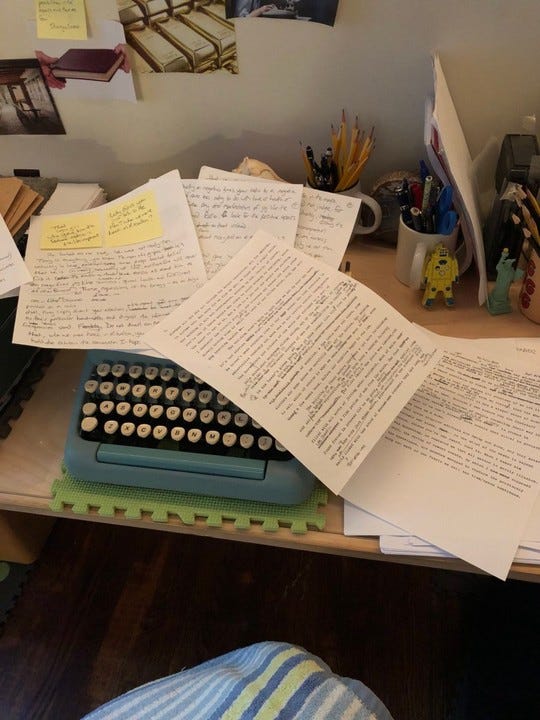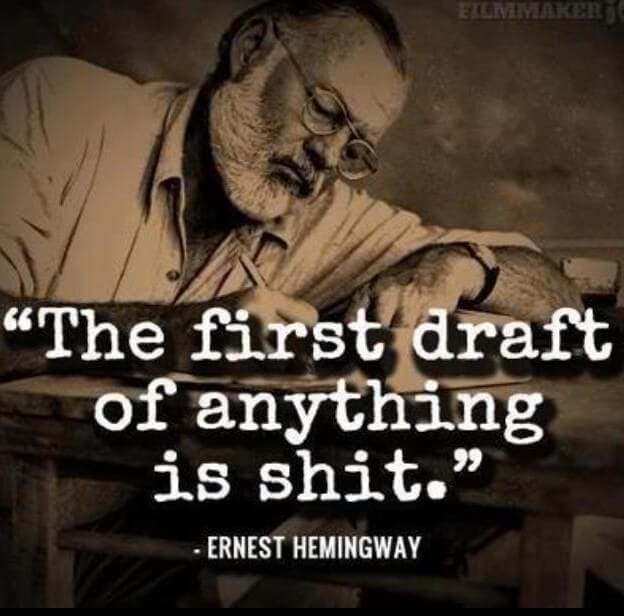Pre-Writing Questions to Ask Yourself
Children's author Cara Stevens on how to turn your ideas into manuscripts, with help from Hemingway
“Hemingway “voice” we’ve come to know — the crisp, unadorned prose that made him a literary icon — didn’t come naturally to him. An obsessive revisionist, Hemingway could only produce his “voice” at the end of a long and arduous process.” -Damon DiMarco
An excellent pre-writing exercise is to ask yourself the following questions about your story:
Who do you imagine is your ideal reader? An intelligent person who knows nothing about your topic? Your average billionaire? It can sometimes be helpful to keep this person, or type of person in mind to guide your writing process.
What’s the main idea of this piece? Set it down in a single sentence. Why this topic or story? Consider both the individual psychological milieu as well as the context of the times we live in to hit upon something that will resonate.
Knowing exactly what the plot of your story will be and how you’ll develop it is crucial. What drives your story along? Does it answer a question? Be sure to deliver what you promise. The best way to do this is with a “zero draft,” as Ernest Hemingway did. This technique helped the 1954 Nobel Prize Laureate keep organized and “save time”. He used to write out the bare bones plot of the tale, then go back and put meat on the bones. He would sometimes write up to 200 drafts! (You can even send the zero draft to a developmental editor or expert in your subject matter to help you build the architectural foundation of your story.)
Where you choose the BEGIN the story is extremely important. What inciting incident draws us in? This is your hook to get readers to sit down and dedicate their time to read your work, so make it so good they can’t put it down.
Be aware of the change arc of your story to be aware of how one event leads to another — chain of continuity. The change arc is handy in helping you determine scene sequence/importance.
Is your main character truly the main character? Stop and think. Are they merely along for the ride? Responding to someone else who is the real protagonist of the story? A main character has agency and drive and gets all the best lines, like Scarlett O’Hara.
Does your story address readers’ emotions such as fears and questions that may arise? Remember that you want this to become somebody’s favorite book that they enjoy re-reading again and again. It could change a life, or teach someone something they didn’t know.
Important: What 5 books can you compare your story to? List 2 that were written within the last 3 years. Read them every time you feel lost or stuck. They will become your “mentor texts.” Know how is your book like it? Different?
How is your book fresh and different? Find a way to make it different by giving your own unique take on the subject.
What in your book surprises readers? What in your book evokes strong emotional responses? Read the manuscript aloud and have others read it aloud so you’ll be aware of how people respond to the book.
BONUS: Stretch and exercise to preserve your longevity as a writer.







